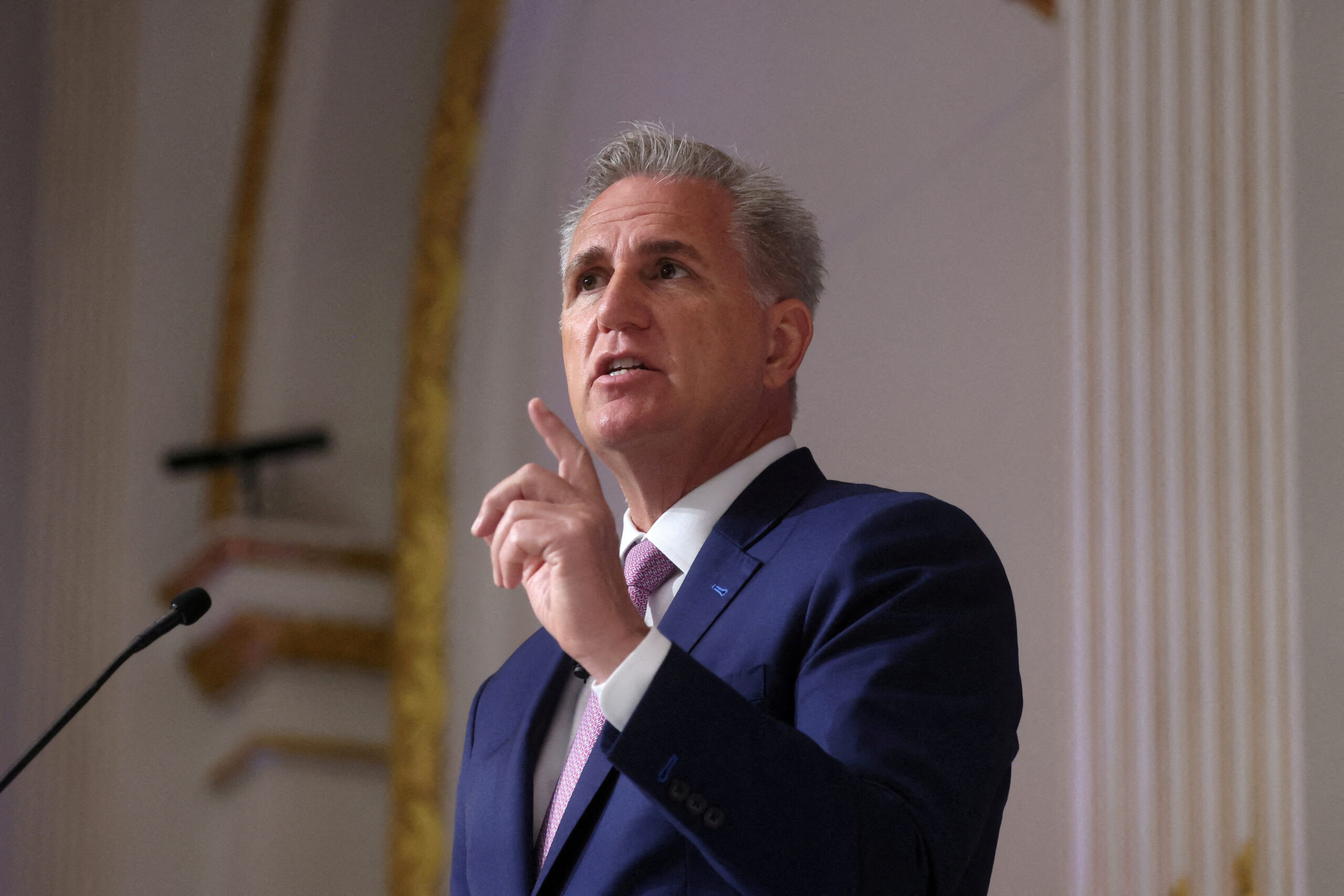The prospect of stricter work requirements for people on social safety net programmes has become a sticking point in negotiations over raising the US debt ceiling, as lawmakers rush to strike a deal before the Treasury runs out of cash as soon as June 1.
Kevin McCarthy, the Republican Speaker of the House of Representatives, said this week that tougher work requirements for recipients of several existing safety net programmes were a “red line” for him in crunch talks with the White House over raising the debt ceiling.
President Joe Biden has in recent days signalled an openness to some reforms to the social safety net, but those remarks have attracted ire from progressive Democrats and exposed the thorny politics of welfare policy for both parties. The potential for a revolt from the left of Biden’s own party complicates his path towards securing a deal in the closely divided Congress.
The clash has prompted some Democrats to insist that Biden take the unprecedented step of invoking the 14th amendment to the Constitution to circumvent the debt ceiling and continue issuing new debt to pay its obligations without legislative approval.
Republicans, who control the House, want to tie a higher borrowing limit to steep spending cuts. They have long pushed for stricter requirements for people claiming government assistance to be participating in the workforce.
The non-partisan Congressional Budget Office has estimated that, taken together, the Republican calls for stricter work requirements would cut federal spending by $120bn over the next decade.
Biden acknowledged on Wednesday that, while serving in the Senate, he had voted for a 1996 welfare reform package that made sweeping changes, many of which remain in place after being signed into law by president Bill Clinton.
While Democrats largely supported those limitations on government aid almost three decades ago, they have rejected them in recent years.
“These requirements don’t result in more people moving to work: they increase food insecurity, decrease access to healthcare and often result in higher costs to the states and federal government,” said Jean Ross, a senior fellow at the Center for American Progress, a left-leaning think-tank.
While Biden appeared to reject work requirements for Medicaid recipients on Wednesday — insisting that he was “not going to accept any work requirements that’s going to impact on medical health needs of people” — he left the door open to stricter rules for other programmes, saying: “It’s possible there could be a few others, but not anything of consequence.”
House Republicans have also called for reforms to Temporary Assistance for Needy Families, which provides welfare payments to families with children in poverty, and the Supplemental Nutrition Assistance Program, previously called the food stamp programme, which helps low-income people buy food. Both programmes already require most recipients to be in work.
While adults claiming Snap who are aged 50 or younger are required to demonstrate that they are in work, Republicans want to increase the age threshold to 56. The CBO says that would result in about 275,000 Americans losing access to the benefits. But Republicans argue the changes would bolster workforce participation and boost the overall economy.
“What we have found with every statistical data, it helps people get a job, it helps our supply chain, it helps the economy and the individual even stronger. And that is what we should be doing,” McCarthy told CNBC on Wednesday.
Many Democrats disagree. David Scott, the top Democrat on the House agriculture committee, said: “Taking food away from low-income households under the guise of ‘work requirements’ does not create jobs. It does not encourage work. It only serves to make life harder for people.”
Progressive members of Biden’s party have threatened to vote against any compromise. Alexandria Ocasio-Cortez, the Democratic congresswoman from New York, said the White House can “expect pushback on nearly any significant concession”.
“It’s unbelievable to be back in this fight,” said Lindsay Owens of Groundwork Collaborative, a progressive economic think-tank. “I think there’s a growing chorus of senators and members of the House who would be unable to vote for any deal that includes any work requirements.”
Sheldon Whitehouse, the Democratic senator from Rhode Island and chair of the budget committee, said it was time for Biden to invoke the 14th amendment, which says the validity of US debt “shall not be questioned”, and keep borrowing above the limit rather than continue negotiating.
It remains unclear whether McCarthy will be able to rally all of his members around the proposals. While most Republicans have backed the idea of stricter work requirements, a handful who represent swing districts and face difficult re-election bids next year have been reluctant to sign on to the idea.
Others have suggested the debate could be punted to later in the year, when lawmakers are likely to face another tough fight over the farm bill, a multiyear law that governs agricultural and food programmes.
“We know we’re not going to get everything,” Don Bacon, a Republican congressman from Nebraska, told reporters on Capitol Hill this week. “If we get three, four compromises, that’s a success.”
‘Welfare to work’ rules become sticking point in US debt ceiling fight

